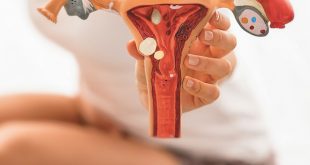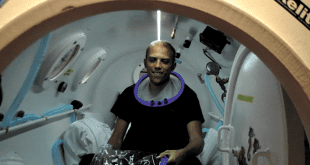Dr. Vahora, MD, FACOG
 Breast cancer affects both men and women worldwide at a whopping 1.4 million new cases annually. Consequently, in the United States, breast cancer is the second leading cause of death after heart disease in women. And here locally, in the state of Florida, nearly 16,000 new cases of breast cancer are diagnosed each year.
Breast cancer affects both men and women worldwide at a whopping 1.4 million new cases annually. Consequently, in the United States, breast cancer is the second leading cause of death after heart disease in women. And here locally, in the state of Florida, nearly 16,000 new cases of breast cancer are diagnosed each year.
Screening
A small investment of your time can help save your life. Early breast cancer diagnosis is what spares lives and offers longevity. Physicians cannot stress the importance of getting regular mammograms as well as doing self-breast examinations enough. The breast cancer survival rates in the U.S. are 80-90% if caught in the first stage due to advanced care. However, the diagnosis in later stages drastically drops the survival rate to 24%. It’s essential to schedule your mammogram tests regularly, and if you feel a lump, please contact your physician immediately.
Risk Factors
• Being Female
• Age
• Cancer Recurrence
• Overweight
• Hormone replacement therapy
• Alcohol consumption
• Environmental toxins
• Dense breast tissue
• Unhealthy lifestyle & diet
• Menstrual onset before 12 yrs.
• Menopause after 55 yrs.
• Family History (sister, mother, daughter)
• Genetics (BRCA1 and BRCA2)
Genetics is a Major Factor In Breast Cancer Disease
Genetic Testing
Genetic testing is a cutting-edge medical technique that looks at your unique genetic makeup, which can be used to see how your DNA might shape your health over the course of your life. A sample of DNA is collected—typically with a small sample of blood or saliva—then analyzed in a lab to look for evidence of genetic disorders or vulnerabilities to some diseases. For example, people with specific gene mutations might develop some cancers earlier in life, or at a higher rate, than the general population. This is particularly the case with breast cancer and the BRCA gene mutations.
Dr. Pareen Vahora, M.D., FACOG, a Board-Certified Gynecologist offers Genetic testing in the comfort of her office for her patients. A sample of DNA is collected with a small sample of blood or saliva, and then it’s analyzed in a lab to look for evidence of genetic disorders or vulnerabilities of specific diseases.
BRCA Positive
In some cases, if you are positive for a BRCA mutation, your gynecologist and surgeon may recommend that you have a partial or full hysterectomy. These precautionary surgeries will reduce your risk of breast cancer by 50% and ovarian cancer by approximately 90%. However, this will cause your body to go into a menopausal state early.
Multiple conflicting research and studies show it’s not safe to receive any hormonal estrogen therapy if you have the BRCA gene. One school of thought is that it intensifies further cell mutations in breast cancer.
When you have early onset menopause caused by surgery, you’re symptoms, and risk factors are just as uncomfortable as if you were going through the change naturally. These symptoms can cause hot flashes, weight gain, and very painful intercourse. Whether you can’t take estrogen or choose not to, for women of all ages, it’s unfair to experience these distressing symptoms, especially sexual discomfort with your significant other.
MonaLisa Touch®
Due to the limited estrogen supply, the walls of the vagina start to thin out, causing dryness, burning, and inflammation. This can make intercourse very painful and can cause urinary disorders and can even interfere with daily activities for many women due to the extreme pain and discomfort that it can cause.
Dr. Vahora offers MonaLisa Touch®, an advanced procedure the revitalizes the vagina and makes it feel like a younger vagina. For countless women and their partners, it has turned back the clock of time.
This advanced technology is called the MonaLisa Touch®.
It is a new laser therapy for the vagina and vulvar. There are no medications, no cutting and no lengthy healing times with this procedure. It’s similar to having a basic Pap smear test done. The laser does not hurt or cause any pain. You will only feel tiny vibrating sensations from the machine, and the best part is that the entire procedure is accomplished in an outpatient, office setting.
The laser assists with the bodies cell renewal and will regenerate the mucous membrane and help with the restoration of collagen and renewing the proper trophic balance to the membrane.
Now it’s possible to have relief from vaginal and vulvar atrophy due to the MonaLisa Touch’s® ability to gently improve the tissue of the vaginal mucosa. The laser stimulates the production of collagen, improving the functionality of the treated area and restoring the proper trophic balance to the mucous membrane.
Whether you’re in menopause and experiencing vaginal dryness, or if you are suffering from these sexually uncomfortable symptoms due to a hysterectomy or breast cancer, Dr. Vahora can help.
If you are concerned about your genetic mutations and cancer risks, Dr. Vahora offers genetic testing for men who may have personal or family history of colon, stomach, prostate, stomach cancer, and for women with a family history of breast, ovarian or uterine cancer.
If you’re concerned about breast cancer, or if your sex life has lost its spark, please contact Dr. Vahora to schedule a consultation. Call today to schedule your gynecological, genetic testing, or your MonaLisa Touch consultation at (727) 376-1536.
PARVEEN S. VAHORA, MD, FACOG
727-376-1536
Info@ParveenVahoraMD.com
www.ParveenVahoraMD.com
9332 State Road 54 Suite 403
Trinity, FL 34655
Check Also
Advanced Treatment For Vaginal Discomfort: What you should know about the MonaLisa Touch®
Dr. Vahora, MD, FACOG Many women carry a little secret that they dare not tell …
 Central Florida Health and Wellness Magazine Health and Wellness Articles of the Villages
Central Florida Health and Wellness Magazine Health and Wellness Articles of the Villages



